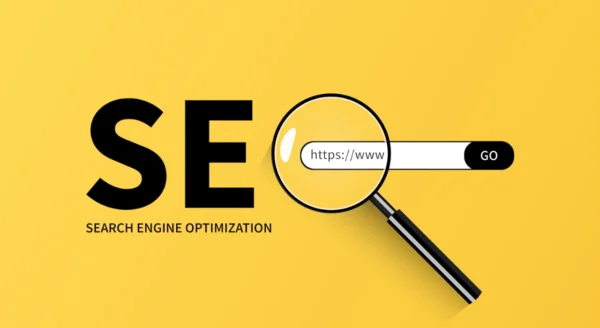Healthcare marketing is a crucial aspect of promoting services, building relationships with patients, and enhancing the reputation of healthcare organisations. It involves various strategies and tools aimed at improving patient acquisition, retention, and overall brand visibility. Here’s a breakdown of what health care marketing typically involves and how a budget can be allocated effectively:
Key Components of Health Care Marketing:
- Branding and Positioning:
- Establishing a unique and memorable brand identity.
- Ensuring consistency across all marketing materials, online presence, and patient interactions.
- Digital Marketing:
- Website: A user-friendly, informative website is essential. It should have clear information about services, easy navigation, and be optimized for SEO (search engine optimization).
- Social Media: Platforms like Facebook, Instagram, LinkedIn, and Twitter can be used to engage with the community, share valuable health tips, and promote services.
- Paid Ads: Google Ads or social media ads can be targeted based on demographics, location, and search behavior to reach a specific audience.
- Email Marketing: Sending newsletters, appointment reminders, and health tips to a subscriber list to maintain patient engagement.
- Content Marketing:
- Creating educational content like blogs, videos, and infographics that inform and engage patients.
- Developing resources that answer frequently asked questions or provide in-depth insights on medical conditions and treatments.
- Patient Experience and Reviews:
- Positive reviews and testimonials can significantly influence new patients. Encouraging patients to leave reviews on platforms like Google, Yelp, and Healthgrades is crucial.
- Improving patient experience to drive word-of-mouth marketing.
- Community Engagement and Events:
- Participating in or sponsoring local health events, charity runs, or health fairs.
- Hosting free health screenings or workshops to provide value to the community.
- Search Engine Optimization (SEO):
- Optimizing content to rank higher on search engines, especially for locally-targeted searches (e.g., “best pediatrician in [location]”).
- Referral Programs:
- Encouraging existing patients or referring physicians to recommend services to others.
Budget Allocation for Health Care Marketing:
Creating a marketing budget is essential to ensure that the funds are used effectively. Here’s a guideline for allocating the marketing budget:
- Digital Marketing (40-50%):
- Website Maintenance & Optimization: Regular updates, SEO, and improving user experience.
- Paid Advertising: Google Ads, Facebook Ads, and other targeted advertising.
- Social Media: Costs related to content creation, social media ads, and management tools.
- Content Creation (15-20%):
- Video production, blog writing, and other educational content development.
- Design costs for infographics, flyers, and patient brochures.
- Community Outreach (10-15%):
- Sponsorships for local events, health fairs, or charity initiatives.
- Hosting community seminars or free health clinics.
- Patient Relationship Management (10-15%):
- CRM (Customer Relationship Management) tools to manage patient outreach, engagement, and retention.
- Email marketing campaigns, automated reminders, and appointment scheduling tools.
- Traditional Marketing (5-10%):
- Print advertising (brochures, newsletters, magazines).
- Local media advertising, like radio or TV ads (if applicable).
- Market Research (5%):
- Surveys and feedback tools to understand patient satisfaction, brand perception, and areas for improvement.
Important Considerations:
- ROI Measurement: Tracking the return on investment (ROI) for each marketing initiative is vital. This can be done through metrics like website traffic, conversion rates, and patient acquisition costs.
- Local Targeting: Health care marketing should often be localized due to its nature. Ads, content, and SEO efforts should be targeted to your specific geographic region.
- Compliance: Health care marketing must comply with privacy regulations such as HIPAA (Health Insurance Portability and Accountability Act) in the U.S. This includes ensuring that patient data and communications are secure and handled appropriately.
By setting clear goals, understanding the target audience, and allocating resources efficiently, a health care marketing strategy can be highly effective in attracting and retaining patients while promoting a positive and trustworthy image.

Talking the Talk: Mastering Voice Search Optimization in Healthcare Content Marketing
With healthcare content marketing, staying ahead means embracing the latest trends. Currently, Voice Search Optimization (VSO) is making waves in the digital age. Did you know that your voice is the new keyboard? Data shows that an astonishing half of the population in the United States is already conversing with their devices daily. In India, voice search queries in India have grown 270% year-over-year.

9 Ways Digital Technologies Have Revolutionized Healthcare Marketing and Branding
Digital technology has revolutionized healthcare marketing and branding, offering numerous opportunities to connect with patients, enhance brand visibility, and provide better care. Here are several ways in which digital technology can be leveraged in healthcare marketing and branding

The Pulse of Progress: Adapting to the New Era of Healthcare Marketing
Marketing is pivotal in bridging the gap between healthcare providers and consumers. With rapid technological advancements, evolving consumer behavior, and regulatory changes reshaping the landscape, understanding these shifts is crucial for any healthcare marketing professional.

10 Strategies for an Effective Marketing Message
Consider performing extensive research on your target audience. This may help you find key information that can influence your audience in favour of your product or service. Valuable information may include their likes and dislikes, their pain points, what services they’re interested in.

The Ultimate Guide to Hospital Website SEO
With the rapid growth of internet usage and smartphone adoption in India, having a strong digital presence has become imperative for healthcare organisations. According to Statista: the number of internet users in India was forecast to continuously increase between 2023 and 2028 by 265.1 million users (+26.29 percent).

From Clicks to Care: Why Healthcare Content Marketing Matters
In an era where information is at our fingertips, effective communication has never been more important! How do healthcare organisations stand out in an increasingly competitive landscape? The art (and science!) of content marketing is a valuable tool.

